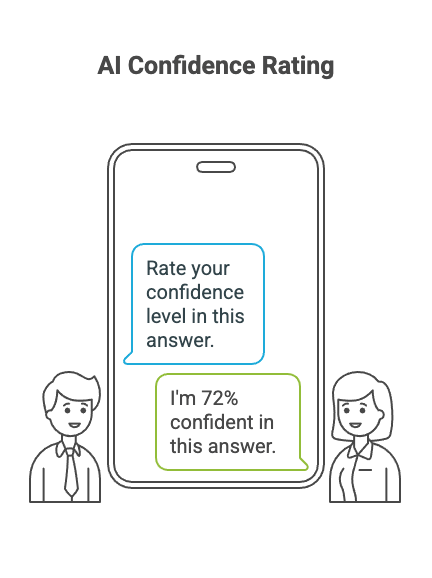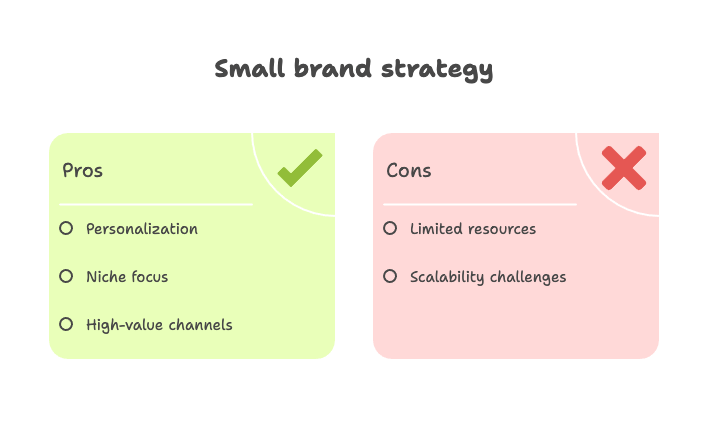- Lunch With Norm
- Posts
- [LWN] 💰The Most Expensive Tip I’ve Ever Seen...
[LWN] 💰The Most Expensive Tip I’ve Ever Seen...
Lunch With Norm's Weekly Newsletter - Amazon News & Updates
💰The Most Expensive Tip I’ve Ever Seen…

What you’ll find in this week’s newsletter:
💰 The Most Expensive Tip I’ve Ever Seen… [True Story]
👀 ChatGPT is Leaking Your Secrets!?
🛒 Amazon will no longer prepare your inventory
🚀 10 Short Prompts that 10x ChatGPT Results
📕 Neil Patel’s SEO Playbook for 2025
🚨 I’ve got a special offer with Sellerboard. If you’re struggling with tracking storage fees, inbound shipment, remissions, labeling fees… grab 3 free months here (no strings attached) and get better profit analytics.
💰 The Most Expensive Tip I’ve Ever Seen … [TRUE STORY]
Back in the late '80s, my partners and I were just starting out with a clothing apparel company.
It was a small operation at first, but we had dreams of doubling, tripling, even quadrupling in size.
To do that, we needed more machinery, more resources, and that meant getting a significant line of credit from the bank.
My partners and I spent weeks preparing all the documents and crafting the perfect business plan.
Finally, the day came when you were called into the bank's office in downtown Toronto.
The bank manager looked at you all with a serious face, and after what felt like an eternity, he said, "Congratulations, guys."

The relief and excitement were off the charts.
We did it!
That line of credit was the key to making your big dreams a reality.
Naturally, we all decided to celebrate at a popular downtown restaurant.
The food was great, the drinks were flowing, maybe a bit too much.
When the check came, the waitress asked about the tip.
My partner, feeling a bit too confident and definitely a bit tipsy, told her to put in whatever she wanted.
As you all walked out, still buzzing from the celebration, your partner suddenly looked down at the receipt and realized she had put in a $400 tip!
My other partner and I couldn't help but laugh, seeing it as a well-deserved lesson in humility.

In the end, it was a moment that reminded you all that no matter how big the win, staying grounded is essential.
Getting that line of credit felt like we’d made it.
We worked hard for it.
We earned it.
But that $400 tip?
That was a reminder that success can go to your head if you’re not careful.
It’s easy to let your guard down when the money finally comes in, but that’s usually when you need to be more disciplined, not less.
Remember to keep your feet on the ground.
Enjoy the rest of the newsletter.
P.S. The Best of BDSS webinar was just announced for Aug 7.
— Norm

👇THE TOP MUST READ STORIES THIS WEEK 👇
🛑 As of January 1, 2026, Amazon will no longer prepare your inventory
👎 Amazon makes bad seller reviews worse
🦾 This is how AI Is reshaping supplier negotiations
🚀 There will be a potential sales lift by product category for shoppable videos
💰 AMC Launches AI Audience Generator & Product Support (Beta)
🚨 Amazon Accelerate main-stage speakers announced and early bird pricing ends soon
🛒 Amazon’s new 'Buy for Me' feature helps customers find and buy products from other brands’ sites

😱 ChatGPT is Leaking Your Secrets!?
Well, that didn’t take long.
OpenAI just pulled the plug on a feature that let users make their ChatGPT chats searchable on Google.
You might’ve seen it floating around the little “Make this chat discoverable” checkbox when you shared a link.
It sounded innocent enough.
Until people realized their most personal, unfiltered chats were being indexed for the whole internet to see.

A small checkbox asks ChatGPT users if they want to make conversations available in search results. (Credit: ChatGPT)
We’re talking resume rewrites, therapy questions, relationship advice, even bizarre microwave experiments.

To be clear, the feature wasn’t on by default.
You had to click Share, then click Create Link, then opt into making that link public.
But the language wasn’t exactly clear, and a lot of users had no clue what they were agreeing to.
After the backlash, OpenAI backpedaled fast.
They removed the discoverable option completely and started working on scrubbing indexed links from Google, Bing, DuckDuckGo, and everywhere else.

Too many people were accidentally sharing things they never meant to.
And they’re right.
It exposed that people treat ChatGPT like a confidant. A therapist. A late-night advice line.
If you're using AI tools, especially ones that handle sensitive or strategic info, you’ve got to double check what’s being shared and how.
Just because something has a "Share" button doesn't mean it should be out in the open.
Privacy matters.
And as AI keeps getting more personal, we all need to get a little more careful.
🚀 Step-by-Step SEO Content Creation with AI
Excerpt from Futurepedia
Here’s exactly how we would use ChatGPT to create, optimize, and refine on-page content. Cutting our workflow time in half, while improving SEO results.
1. Brainstorm & Classify Keywords
We start by asking ChatGPT to generate a list of relevant keywords and related phrases for his client’s topic (e.g., “best productivity software for freelancers”). Prompting ChatGPT to include long-tail variations and classify each by search intent—so we know what users are really after. This step sets a strong foundation for both targeting and content direction.

2. Outline the Article Structure
Next, we ask ChatGPT to build a content outline using those keywords. The prompt might be:
‘Create an outline for a blog post about [topic] using these keywords. Include H2 and H3 subheadings.’
The result? A ready-to-go structure with optimized headlines and logical flow—no blank page anxiety.
3. Draft SEO-Optimized Content
With the outline in place, we request ChatGPT to write each section in a specific tone (e.g., “friendly and informative”), making sure the AI integrates keywords naturally. We will review, edit, and add our own insights a snecessary—ensuring the final copy is accurate, original, and fits the client’s brand voice. This approach balances speed with quality.

4. Generate Meta Titles & Descriptions
For every post, we’ll have ChatGPT suggest several versions of meta titles and descriptions, each including target keywords and falling within character limits (under 60 for titles, under 160 for descriptions). We pick the best, tweak as needed, and paste them directly into our CMS—no separate tools required.

5. Optimize Existing Content
When optimizing older posts, we paste the text into ChatGPT and asks: “Analyze this article for SEO gaps and suggest improvements or additional subheadings.” The AI highlights missing keywords, suggests new sections, and even offers rephrased content to improve clarity and ranking potential.
6. Add Enhanced Features & Proofread
To boost engagement and snippet potential, we prompt ChatGPT to create a short FAQ or concise answer box. We also use the AI to check for passive voice, clunky sentences, or missing CTAs—polishing the content before publishing
This workflow lets anyone deliver high-quality, SEO-focused content to clients in a fraction of the time, boosting both his productivity and their search rankings.
🚨 If you would like to learn more about AI and want courses, resources and bootcamps, check out → FUTUREPEDIA
😮 AI Ads Are Outselling Humans (You Can’t Tell They’re Fake)

My takeaways from Jon Gargiulo (find the full episode on YouTube):
Replace UGC with AI-Powered Videos
John from Airpost AI explains how brands are already scaling user-generated-style video ads using AI-generated avatars, VO, and visuals—without a studio or actors. It's not perfect yet, but early adopters are gaining massive cost and speed advantages.
Use Human-Curated Agents to Enhance AI Output
Instead of relying purely on AI, John’s system uses specialized agents—one for research, one for scripting, one for QC, etc.—to simulate a human creative pipeline. This layered system ensures the AI content stays high quality while reducing production time.Customize LLMs for Brand-Safe Output
You can train your prompts and AI workflows to avoid unwanted tones, words, or visual elements. For example, Airpost AI lets users delete irrelevant themes like sustainability, and the system learns not to include them again.Build Reusable Briefs that Guide AI Strategy
John’s team uses one-time onboarding briefs to define the product's personas, value props, tone, and approved content pillars. These guide future outputs and reduce repetitive input.Ask AI to Grade Its Confidence
John recommends a master prompt addition for ChatGPT: ask it to rate confidence levels (e.g., “I'm 72% confident in this answer”). This helps catch hallucinations and guides trust in the output.
Start Testing UGC with Zero Budget
His advice to sellers: start now, even with your iPhone. Record a real unboxing with a friend or yourself using “I” statements. Don’t overthink polish—just get authentic content live.Run AI UGC Ads for Testing… Even if They're Slightly Off
AI-generated ads are cheaper, faster, and infinitely testable. Some versions may flop, but one winning hook can outperform traditional creatives. Accept some awkwardness in exchange for faster iteration.Automation ≠ AI
John breaks down the difference: automation is rules-based and repeatable (e.g., Zapier workflows), while AI agents learn and reason. Smart businesses use AI agents inside automated workflows for full leverageExpect AI-Created UGC to Outperform Soon
AI avatars are already running 24/7 live sales in China. As voice, movement, and emotional realism improve, brands will be able to deploy infinite UGC without creator management, shipping logistics, or production delays.
🌎 Where in the World is The Beard Guy?

Can you find Norm in the picture below? Scroll to the bottom of this newsletter to see the answer!
🚀 10 Short Prompt Lines That 10x Your ChatGPT Results!
Simply add one or more of these lines to the end of your prompt to improve your responses!

“Structure it as clear as possible“
"Challenge everything vague or missing from this prompt"
“What would a top-tier expert do that most people miss?”
"Only include verified and proven data and results. Do not operate on assumptions"
“Reframe this like it’s a breakthrough insight.”
“You are not allowed to give generic advice.”
“Explain from first principles”
“Suggest 5 unexpected ideas”
“Make 5 unexpected and tailored suggestions”
“Tailor your advice, do not give generic advice”
Bonus formatting prompt:
Punctuation Preference (Dash Usage): The user requires that no em dashes (-) be used in any response. Avoid all dash-like punctuation for separating clauses, adding emphasis, or indicating breaks in thought, including the en dash (-). Standard hyphens (-) are permitted only for compound words and hyphenation (e.g., well-being). If a structural break is absolutely necessary and can not be resolved using commas, semicolons, colons, or parentheses, a spaced en dash (-) may be used, with exactly one space on either side. Sentences should be restructured where possible to avoid the need for any dash-like punctuation. These requirements apply to all responses unless explicitly superseded by new user instructions.
🔥 Neil Patel’s SEO Strategy for 2025 (Rank on Every Platform)

Here are my favorite tips from this episode!
Optimize for “Search Everywhere,” Not Just Google
Neil emphasizes that SEO is no longer limited to Google, it now includes platforms like Amazon, ChatGPT, Instagram, Snap, and Apple’s App Store. Your ideal customer uses multiple platforms daily, and brands that don’t adapt will lose visibility and revenue.
Include Key Bullet Points at the Top of Content to Increase AI Overview Visibility
Pages that start with three “key points” (like CNBC articles) are more likely to be cited in Google's AI Overviews. Neil’s team found that when these bullet summaries match user queries, inclusion rates go up significantly.Freshness of Content Impacts Inclusion in AI Results
LLMs like ChatGPT and Google's AI Overview prefer content that’s less than one year old. For evergreen facts (like how fast a cheetah runs), older content is fine but for most queries, freshness wins.Use Digital PR to Drive Mentions
Mentions in press, even without backlinks, significantly help LLM rankings and AI visibility. Getting cited by authoritative sources (e.g. via press releases, HARO, or features) is a reliable way to increase brand presence in answer engines.Focus on “Answer Engine Optimization” (AEO) Across LLMs
To get cited in AI-generated answers, your content needs to directly solve specific queries, be well-structured, sentiment-positive, and cited frequently across the web. AEO is about getting your brand named in AI summaries, traffic may not follow, but authority and trust build over time.Human + AI (H-AI) Will Outperform Both Separately
Neil rejects full automation. He argues that AI lacks brand nuance and context, and that the winning formula is blending human input with AI efficiencies. This hybrid approach improves quality, relevance, and business outcomes.Smaller Brands Can Win by Personalization and Focus
NP Digital beats much larger competitors by niching down, offering a more personal client experience, and showing up on overlooked high-value channels—rather than trying to outspend the big players.
Find this episode of Marketing Misfits on YouTube and anywhere you listen to podcasts
🌎 MARK DOWN THESE EVENTS! 🌎
August 4 - New York - Starting at $499
August 19 - Virtual - Starting at $697
Sept 16 - Seattle, Washington
Oct 20 - New York - Starting at $428
→ FULL CALENDAR ←
And that’s it, Beardos.
See you next Monday!
- Norm

Interested in sponsoring the Lunch With Norm Newsletter? Reply back to this email for more details.
Reply